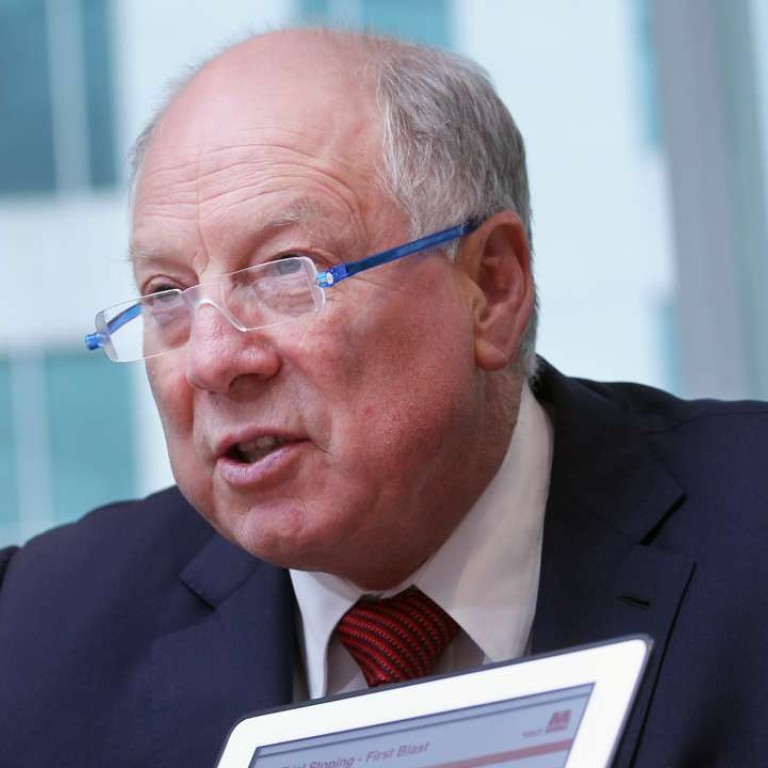
MMG sees tight focus and tapping local talent as keys to outbound M&A success
Copper miner wants to ensure all its recent acquisitions are on track before making any further deals despite attractive prices
“Making an acquisition overseas is easy, managing it is not.” That is a common saying among corporate leaders. For Andrew Michelmore, the chief executive of Beijing-backed metals miner MMG, adapting to the local culture rather than trying to change it, and employing the right local managers, are keys to success.
Chinese mining firms are facing the “new normal”, not only in the pace and the way Beijing wants economic growth to go, but also the way mining businesses are run and grown, as the commodities oversupply and price slump mean being disciplined in capacity expansion and acquisitions is essential.
“Our number one, two, three priorities are to get our Las Bambas copper project [in Peru] up and running and generating net cash,” Michelmore told the Post in an interview when asked if MMG would consider buying more mines, given that the industry downturn meant assets were much cheaper, after splashing out US$7 billion to buy the Peru project in 2014.
“We do not want to take the eye off the ball and have any hiccups there [Las Bambas]. That doesn’t mean we don’t do background work on what might be possible [for more acquisitions], but it is not our prime focus.”

Michelmore had said in 2015 that MMG would need to make another acquisition bigger than the US$1.36 billion Kinsevere copper mine in the Democratic Republic of Congo that it bought in 2012, to realise its goal to become a “mid-tier” global mining firm by 2020.
Although the big global mining firms have been offering to sell assets amid the downturn, he said most of the assets for sale were unattractive “dogs”.
“We are not interested in buying a dog, because all you can do is make its tail wag. We are after long-term cash-generating assets that we can add value to.”
MMG is 71.7 per cent owned as the overseas mining unit of state-owned metals trading major China Minmetals, but the main stakeholder has given a free hand to Michelmore and his team – based in Melbourne, Australia – to manage MMG. All MMG assets are overseas.
Instead of sending a group of expatriates to run the overseas projects, as some of its Chinese state-backed rivals did, MMG tended to send only a few key managers from headquarters to help train local managers and set up computer, accounting, purchasing and human resources systems in the project country, then repatriate them. In the case of Kinsevere they left just one expatriate after the mine was fully operational.
“That is the model we apply everywhere … we impose our values, but we allow the local culture [to be blended in],” he said. “That’s why we employ as many good local managers as we can because they know how to make things work in that country.”
Michelmore said Minmetals, with over 60 years of experience in the international metals trading business, well knew the differences between operating in China and abroad, whereas many other state-owned firms, while powerful and well-connected in China, were not familiar with overseas markets.
“How things operate and the issues in Congo, Laos and Peru are all different … when we go in, the first thing we do is to understand the differences, not trying to make them the same … a lot of Chinese companies want to make their overseas operations the same as back home.”
He cited an example in Laos, a Buddhist nation where people are reluctant to point out errors in decisions made by their seniors. There it was often the women who tended to show leadership in challenging the status quo.
In Peru, where a lack of trust in miners by local communities due to past mistreatments has resulted in roadblocks being erected near its mine. MMG had to work closely with the government to ensure the taxes and royalties paid by it were used in ways that benefited the local community.

